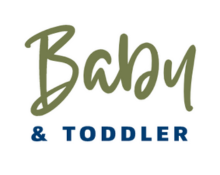
Breast milk production is a complex and fascinating process that involves several key steps. Here is a simplified explanation of how breasts produce milk:
Hormonal Stimulation: The process of milk production begins during pregnancy. Hormonal changes, particularly an increase in the hormone prolactin, stimulate the development of mammary glands in the breasts. These glands are responsible for producing milk.
Milk Production: After childbirth, the hormone prolactin continues to stimulate the mammary glands. When your baby suckles at the breast, nerve endings in the nipple are stimulated, sending signals to the brain. This triggers the release of prolactin, which signals the mammary glands to produce milk.
Milk Synthesis: The mammary glands synthesize milk within specialized cells called alveoli. These cells extract water, proteins, carbohydrates, fats, vitamins, minerals, and other essential components from your bloodstream to create breast milk.
Milk Ejection Reflex: When your baby suckles, another hormone called oxytocin is released. Oxytocin triggers the milk ejection reflex or letdown. This causes the muscles surrounding the alveoli to contract, pushing the milk into the milk ducts, and ultimately to the nipple. The milk is then available for your baby to feed.
Supply and Demand: Breast milk production operates on a supply-and-demand basis. The more frequently and effectively your baby breastfeeds or milk is expressed, the more signals are sent to your body to produce milk. The breasts continuously produce milk to meet your baby’s needs, adjusting the supply based on demand.
It’s important to note that milk production is a dynamic process influenced by various factors, including your baby’s feeding patterns, latch and suckling effectiveness, and your overall health and well-being. Proper latch, frequent breastfeeding or milk expression, and ensuring your baby adequately drains the breasts can help maintain a healthy milk supply.
If you have concerns about milk production or encounter challenges with breastfeeding, seeking guidance from a lactation consultant or healthcare provider can provide personalized support and assistance. They can evaluate the breastfeeding relationship, address any issues, and provide strategies to optimize milk production and feeding success.
